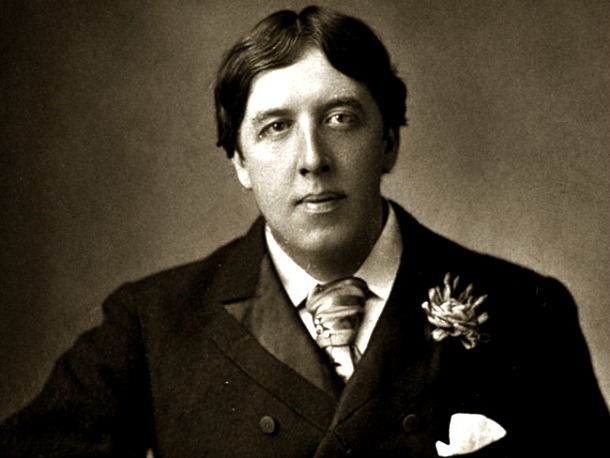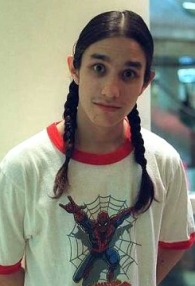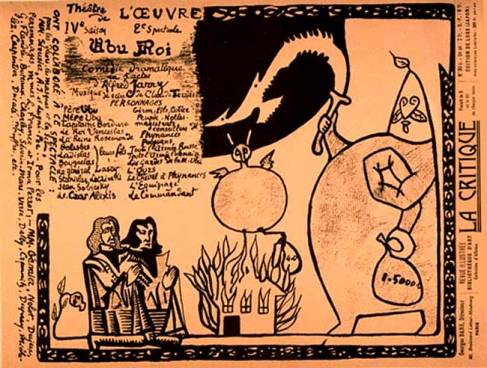Antares leaves the wife at home for THE IMPORTANCE OF BEING EARNEST
The foyer of the Actors Studio Theater in Bangsar saw a festive crowd on opening night of The Importance of Being Earnest. It was a blessed relief after seeing so many empty houses at recent productions. Seems that Oscar Wilde is alive and well in KL. Last year, Rey Buono’s politically resonant staging of Gross Indecency: The Three Trials of Oscar Wilde drew good houses on most nights. One might remark that poor mistreated Oscar, more than a century later, has become an alternative culture hero in the Wilde East.
About three years ago, the phenomenal Ivan Heng cross-dressed on stage in Emily of Emerald Hill. Subsequently, Chowee Leow followed suit in his sophisticated one person show, An Occasional Orchid. Then Na’a Murad (and later Rashid Salleh) impersonated Charley’s Auntie in Richard Gardner’s popular adaptation for local stage and TV. The cross-dressing trend – or, rather, tradition, if we hearken back to norms in Chinese opera and Elizabethan theater – continues with Joe Hasham’s camped-up (per)version of Earnest, which has almost the entire male cast in partial drag.
Rashid Salleh showed some nice leg as Algernon Moncrieff but needed some work on his lines. Edwin Sumun’s Jack Worthing was infamously foppish and was served with a garnishing of Cantonese that sometimes distracted (or perhaps detracted?). Ari Ratos was a highly irregular scream as a conically enhanced and somewhat cartoonish Miss Prism, while Na’a Murad pretty much played himself as the libidinous Rev. Canon Chasuble. Ahmad Ramzani Ramli portrayed Lane (the valet) as some inscrutable Arabian Nights genie, oriental despot, or hotel commissionaire; and Sham Sunder Binwani’s Merriman was a big fat intrusive Chinaman with an intimidating pigtail.
The casting of Allan Perera and Indi Nadarajah (of Comedy Court fame) as Gwendolen Fairfax and Lady Bracknell was perhaps inspired by their wonderful work as Mertle and Thavi in MenApause. Both rose to the occasion admirably: Perera turned in a virtuoso performance as Miss Fairfax, and Nadarajah’s Lady Bracknell was hilariously (and headshakingly) aiyo-yo.
But the Drag Princess of the Year award must surely go to Gavin Yap as the virginal Cecily Cardew. With his demure gestures, precise inflections and cygneous (swanlake) arabesques, he was delectable enough to kiss. He certainly could have fooled me on a blind date. Yap, recently returned from performing arts studies and work in the US and UK, is definitely a welcome infusion of genuine talent.
An acapella chorus consisting of five petite females – REAL ones, whatever that implies – with angelic voices and sadistic body extensions charmed whenever it sang, but otherwise became merely an accessory on stage – and a somewhat distracting one at that. The original music – credited to a mysterious “C.33” – was appropriate and competent enough, so I suspect the coy anonymity was prompted by work permit constraints (but I hope to stand corrected on this).
Speaking of accessories, there was a lavish abundance of visual gewgaws adorning the set, thanks to Paul Loosley’s raucously rococo production design: larger-than-life nude statues suffering from acute sexual repression, mutant sunflowers, Beardsley prints, a conspicuous framed painting of an aging fop on an easel, mural-sized facsimiles of a 30,000-word letter from the imprisoned Oscar Wilde to his lover Bosie, and an overhanging photographic enlargement of Wilde’s visage with the eyes blanked out. Loosley (award-winning director of advertising films who started out as an art director) obviously set upon his assignment with unstinting fervor and inspired flair.
The artsy, eccentric set was complemented by outrageously flamboyant costumes designed by Loh, a veteran wardrobe stylist for the advertising industry. A lot of creative effort, it appears, went into this Actors Studio and Comedy Court co-production – much of it culled from the advertising world. It’s a very positive thing indeed to see talented individuals in adbiz venture into showbiz, but it’s almost inevitable that the dictates of one profession do not always translate successfully into the other. The advertising profession thrives on imitation, parody, sensationalism and quick bytes – which may not be such a wonderful thing in the literary or dramatic arts – at least not in the long run.
For sure I had a good time at Hasham’s Earnest. It was a great party trick to see Indi Nadarajah as an overbearing Victorian dowager with a distinctly Tamil personality, and Allan Perera as her alternately coquettish and petulant Eurasian daughter. The sheer novelty effect – and the famous comedy duo’s irresistible appeal – made it a worthwhile outing. However, the overcampification of Algernon and Jack added little to the gay subtext, even with vernacular accents thrown in – apart from the fact that homosexuality acknowledges no ethnic boundaries. At times, the puerile flippancy actually blunted the sardonic edge of the Wilde wit by reducing it to the level of a schoolboy skit.
I wouldn’t rate this production “important” or “earnest” but it was undeniably fun.
2002












